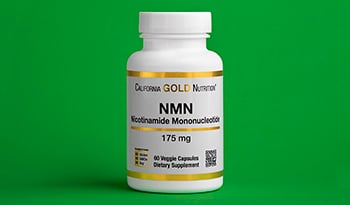Butyrat vs probiotika: Hvad er forskellen?

„Jeg prøvede alle probiotika på hylden. Intet virkede. „
Dette var Sarahs historie, måske er det også din. Hun havde ophidselse efter hvert måltid, kunne ikke gå på toilettet i dagtimerne og følte, at hendes mor styrede hendes liv. Naturligvis har hun brug for probiotika — det foretrukne kosttilskud til en sund tarm.
Men efter måneders forsøg med mærke efter mærke ændrede intet. Det var da, hun lærte om noget, der hedder butyrat - et postbiotikum, ikke et probiotikum.
Inden for få uger efter, at hun startede med butyrat, begyndte hun at stoppe. Toiletbesøg blev regelmæssige. Hendes humør blev endnu bedre.
Så hvad giver det? Hvis probiotika skulle være tarmens helte, hvorfor hjalp de så ikke? Og hvad er butyrat egentlig?
Lad os analysere det.
Probiotika vs. Postbiotika: Hvad er forskellen?
Vi hørerkonstant om probiotika , men postbiotika? Ikke så meget.
Her er den største forskel:
- Probiotika er levende bakterier (eller nogle gange inaktiverede), som du indtager for at understøtte et sundt tarmmikrobiom. Det er ofte arter som Lactobacillus eller Bifidobacteria.
- Butyrat er et postbiotikum — en gavnlig metabolisme, der produceres, når visse bakterier nedbryder resistent tarmdannelse, en type fiber, i tyktarmen. Det er ikke levende som et probiotikum. Det er en kortkædet fedtsyre (SCFA) med kraftige virkninger på tarmen og videre.
Med andre ord kan probiotika producere postbiotika - men det gør ikke alle. Og de fleste probiotiske kosttilskud indeholder ikke de bakterier, der er i stand til at producere butyrat.
Hvordan virker probiotika og butyrat sammen?
Tænk på din mave som en have.
- Probiotika er som at plante frø - de introducerer gavnlige bakterier.
- Butyrat er som kompost — det er det næringsrige resultat, der nærer jorden (din tarmslimhinde) og understøtter alt, der vokser der.
Mens probiotika kan hjælpe med at ændre mikrobiom til mere balance, nærer og styrker butyrat direkte tarmbarrieren, understøtter antiinflammatoriske processer og bevæger sig endda gennem blodbanen til gavn for hjernen og immunsystemet.
Hvor probiotika primært virker i tarmen, virker butyrat systemisk.
Hvorfor butyrat kan virke, når probiotika ikke gør det
Probiotika er nyttige - men de er ikke et universalmiddel.
Nogle almindelige årsager til, at probiotika muligvis ikke virker:
- Din mikrobiologi har muligvis ikke den rette balance af arter til at trives
- Du får ikke butyratproducerende stammer (som Clostridium eller Eubacterium) i dit kosttilskud
- Du har måske allerede for mange af visse probiotiske stammer — ja, selv „gode“ bakterier kan komme i ubalance
Det er her, hvor butyrat skinner. Det omgår behovet for de rette bakterielle forhold og går direkte i gang med arbejdet.
Viser faktisk forskning, at:
- Butyrattilskud kan hjælpe med at lindreIBS (irritabel tarmsyndrom)symptomer som oppustethed, smerter, afføring og forkølelse.
- Det kan hjælpe med at styrke tarmslimhinden og reparere skader fra betændelse eller udslæt tarm.
- Det kan understøtte humør og hjernens klarhed via tarm-hjerne-aksen.
Derudover er det veltolereret med en meget lav risiko for bivirkningsprofil. Bare sørg for at være meget opmærksom på din tarmsundhed og læg mærke til eventuelle ændringer, der begynder at opstå.
Har du brug for både butyrat og probiotika? Måske.
Butyrat og probiotika er ikke rivaler - de er holdkammerater.
Du kan tage dem sammen:
- Probiotika kan hjælpe med at fylde din tarm med gavnlige arter.
- Butyrat sikrer, at din tarmslimhinde forbliver stærk og støttet.
- Sammen kan de skabe en mere komplet strategi for tarmstøtte.
Nogle starter med probiotika. Andre starter med butyrat. Nogle har brug for begge dele. Den rigtige protokol afhænger af dit unikke tarmsystem.
Sidste konklusion: Lyt til din mavefornemmelse bogstaveligt talt
Hvis du har prøvet probiotika og ikke mærket noget... betyder det ikke, at din tarm er ubrugelig. Det kan kun betyde, at du har brug for et andet værktøj.
Butyrat er ikke et probiotikum - det er et postbiotikum med stærke fordele for tarm, hjerne, immunforsvar og inflammatorisk sundhed.
Det fungerer anderledes, og for mange fungerer det bedre.
Din tarm har sit eget sprog. Symptomerne er signaler. Hvis probiotika ikke virkede for dig, så giv ikke op på din tarmsundhed. Prøv butyrat. Eller prøv begge dele. Du er måske et kosttilskud væk fra den lindring af tarmen, du har ledt efter.
Referencer:
- Amiri P, Hosseini SA, Ghaffari S et al. Butyrats rolle, en metabolisme påvirket af tarmmikrobiota, i hjerte-kar-sygdomme: En omfattende narrativ gennemgang. Front Pharmacol. 2022; 12:837509. Udgivet 2. februar 2022 doi:10.3389/fphar.2021.837509
- Bridgeman SC, Northrop W, Melton PE, Ellison GC, Newsholme P, Mamotte CDS. Butyrat genereret af tarmmikrobiota og dets terapeutiske rolle i metabolisk syndrom. Pharmacol Res. 2020; 160:105174. doi: 10.1016/j.phrs.2020.105174
- Canani RB, Costanzo MD, Leone L, Pedata M, Meli R, Calignano A. Potentielle gavnlige virkninger af butyrat på tarm- og ekstraintestinale sygdomme. Verden J Gastroenterol. 2011; 17 (12): 1519-1528. doi: 10.3748/wjg.v17.i12.1519
- Cazzaniga M, Cardinali M, Di Pierro F, Zonzini GB, Palazzi CM, Gregoretti A, Zerbinati N, Guasti L, Bertuccioli A. Probiotikas potentielle rolle, især butyratproducenter, i behandlingen af gastrointestinal mukositis induceret af onkologisk kemo-radioterapi. Internationalt tidsskrift for molekylære videnskaber. 2024; 25 (4): 2306. https://doi.org/10.3390/ijms25042306
- Gąsiorowska A, Romanowski M, Walecka-Kapica E et al. Effekt af mikroindkapslet natriumbutyrat, probiotika og kortkædede fructooligosaccharider hos patienter med irritabel tyktarm: En studieprotokol fra et randomiseret dobbeltblindet placebokontrolleret forsøg. J Clin Med. 2022; 11 (21): 6587. Udgivet 7. november 2022 doi:10.3390/jcm11216587
- Geirnaert A, Calatayud M, Grootaert C et al. Butyratproducerende bakterier, der blev suppleret in vitro til mikrobioten hos patienter med Crohns sygdom, øgede butyratproduktionen og forbedrede integriteten af tarmepitelbarrieren. Science Rep. 2017; 7 (1) :11450. Udgivet 13. september 2017. doi:10.1038/s41598-017-11734-8
- Nozu T, Miyagishi S, Nozu R, Takakusaki K, Okumura T. Butyrat hæmmer visceral allodyn og tyktarmshyperpermeabilitet i rotationsmodeller af irritabel tyktarm. Science Rep. 2019; 9 (1) :19603. Udgivet 20. december 2019. doi:10.1038/s41598-019-56132-4
- Singh V, Lee G, Son H et al. Butyratproducenter, „Tarmenes vagtpost“: Deres tarmbetydning med og ud over butyrat, og potentiel anvendelse som mikrobielle terapeutiske midler. Front mikrobiol. 2023; 13:1103836. Udgivet den 12. januar 2023. doi:10.3389/fmicb.2022.1103836
- Załęski A, Banaszkiewicz A, Walkowiak J. Smørsyre ved irritabel tyktarm. Prz Gastroenterol. 2013; 8 (6) :350-353. doi: 10.5114/pg.2013.39917
- Zhu LB, Zhang YC, Huang HH, Lin J. Udkast til kliniske anvendelser af butyratproducerende bakterier. Verden J Clin Pediatr. 2021; 10 (5): 84-92. Udgivet 9. september 2021. doi:10.5409/wjcp.v10.i5.84
ANSVARSFRASKRIVELSE: Wellness Hub har ikke til hensigt at stille diagnoser...















































































 Indholdsfortegnelse
Indholdsfortegnelse














